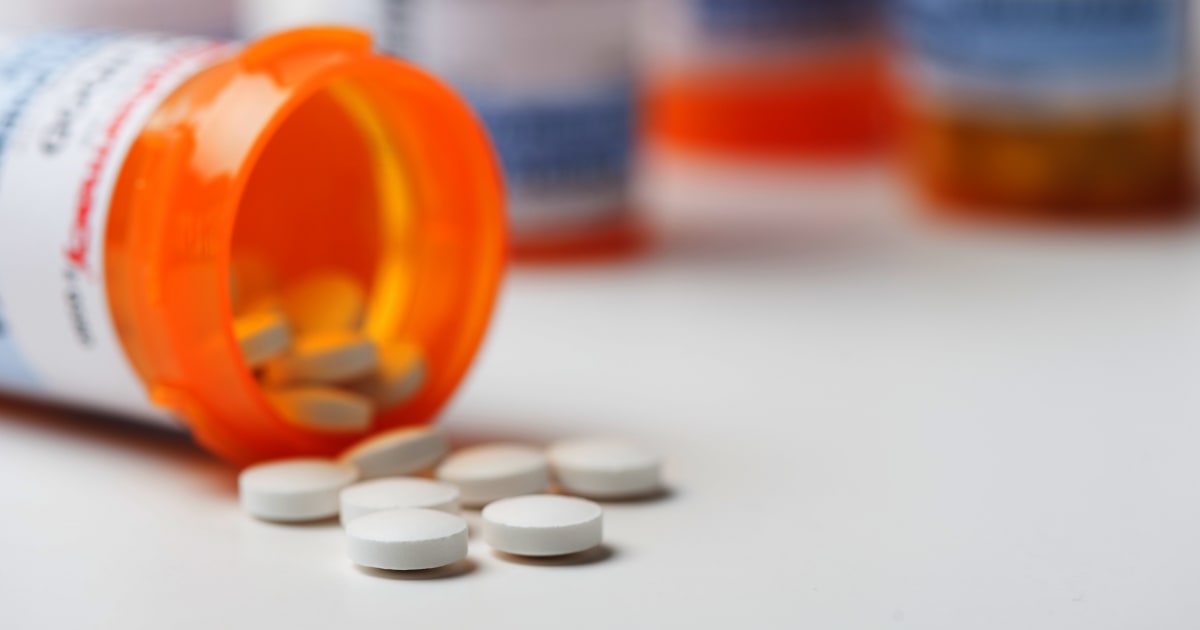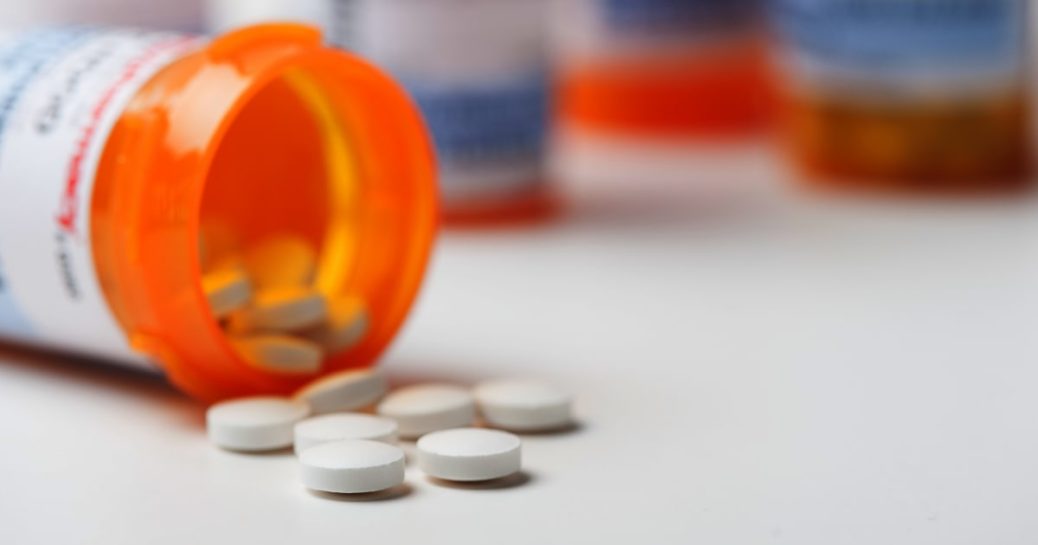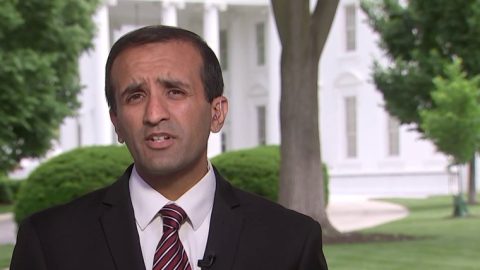
In recent weeks, top health officials have floated an idea for bringing down prescription drug costs in the United States: getting Americans to take fewer medications.
Health policy experts say that while the goal is reasonable, the approach places too much blame on patients and overlooks key issues with drug pricing.
“We need new approaches,” Food and Drug Administration Commissioner Dr. Marty Makary said last week at an event on food dyes, discussing the “alarming” rate of cancer and diabetes in young people. “Let’s not forget that the best way to lower drug prices is to stop taking drugs we don’t need.”
Dr. Mehmet Oz, the administrator of the Centers for Medicare & Medicaid Services, made a similar point at a White House event celebrating his confirmation. “Healthy people don’t consume health care resources,” Oz said. “The best way to reduce drug spending is to use less drugs because you don’t need them, because you’re healthy.”
Chronic disease has been a particular focus for Health Secretary Robert F. Kennedy Jr., who is planning to launch an ad campaign called “Take Back Your Health.” One part of the campaign will ask Americans to pledge to eat healthier and exercise as a way to address the country’s chronic health problems. Beyond the anticipated campaign, the White House hasn’t yet publicly laid out a strategy for lowering chronic disease rates.
About 3 in 4 adults in the U.S. had at least one chronic disease in 2023, according to the Centers for Disease Control and Prevention. The prevalence of chronic conditions among young adults, in particular, has risen sharply over the last decade, from 52.5% in 2013 to 59.5% in 2023. Chronic diseases, such as obesity, heart disease and diabetes, cost the U.S. trillions of dollars a year in medical care and prescription drugs.
Studies show that healthier people with fewer chronic conditions typically have lower medical costs. However, experts argue that health officials are missing two key points: many people rely on prescription drugs for conditions that have nothing to do with lifestyle choices, and drug prices are much higher in the U.S. than in other countries.
“We have the highest drug prices in the world, and when that’s the case, you’re going to be spending a lot on drugs, regardless of whether you’re healthier or sicker,” said Dr. Adam Gaffney, a critical care physician and assistant professor of medicine at Harvard Medical School.
Stacie Dusetzina, a health policy professor at Vanderbilt University in Nashville, Tennessee, said that even if people in the U.S. had “every tool at their disposal” to live healthier lives, they would still get sick.
“People should not be blamed for their need of medication,” she said.
Soaring prescription drug costs
The pronouncements, experts say, echo Kennedy’s view that Americans are overmedicated.
Kennedy has questioned the safety and effectiveness of antidepressants, referring to them as potentially more difficult to stop taking than heroin— a claim that isn’t supported by research. He’s also been critical of the extremely popular diabetes and weight loss drugs such as Ozempic and Wegovy, telling Fox News in October that companies are “counting on selling it to Americans because we’re so stupid and so addicted to drugs.” (He later walked back those comments, telling CNBC in December, “the first line of response should be lifestyle, it should be eating well, making sure that you don’t get obese, and that those GLP drugs have a place.”) Earlier this month, the Trump administration said it wouldn’t move forward with a proposal by the Biden administration for Medicare to cover weight loss drugs.
While the push to make Americans healthier isn’t “a bad motivation,” Dusetzina questioned whether people using fewer drugs would indeed lower costs.
“We wouldn’t be changing how pharma prices their medications specifically,” she said. “If we stopped using as many drugs, there’s nothing necessarily to say that companies won’t just re-price their drugs.”
Dusetzina noted the Trump administration’s self-responsibility approach to lower drug costs is a shift from the Biden administration’s strategy, which focused on going after drugmakers through policies targeting their pricing or the out-of-pocket costs that consumers pay.
Then-President Joe Biden, through the Inflation Reduction Act, lowered the out-of-pocket cost of insulin to $35 a month for people on Medicare — a move that pressured drug companies to do the same for those on private insurance.
The law also required drug companies to pay a fee if they raised the prices of their drugs faster than the rate of inflation.
Most notably, it allowed Medicare to negotiate prices on the costliest prescription drugs people take directly with drugmakers. (It remains unclear whether the Trump administration will ramp up the negotiations or scale them back.)
Larry Levitt, executive vice president for health policy at KFF, a health policy research group, said few would disagree with the idea that lifestyle changes — such as better nutrition and more exercise — would make Americans healthier and reduce health care costs.
“But,” he added, “the anti-pharma rhetoric threatens to obscure the fact that there are chronic illnesses that people can’t control through behavior change,” including Type 1 diabetes, asthma, rheumatoid arthritis and certain cancers.
Gaffney, of Harvard Medical School, said the idea that high drug costs in the U.S. are mainly due to American’s poor health choices is “just not true.”
A recent report by 46brooklyn, a nonprofit group that tracks U.S. drug pricing, found that drugmakers raised the net prices — the cost after rebates and discounts to insurers— on 963 brand name drugs in the January 2025, up from 896 in January 2024.
The drugs included Stelara, used to treat autoimmune diseases such as psoriasis, Crohn’s disease and ulcerative colitis; Revcovi, for a rare immune deficiency disorder called ADA-SCID; Nexavar, used to treat liver, kidney and thyroid cancers; and Januvia, used to help manage blood sugar in people with Type 2 diabetes.
“The whole framing I find perverse,” Gaffney said.
An HHS spokesperson said in a statement that the Trump administration is “committed to lowering the cost of prescription drugs and helping Americans regain and maintain their health.”
“By advancing pro-patient, pro-innovation policies and cutting unnecessary red tape, we are working to make life-saving treatments more affordable and accessible — without compromising safety or quality,” the spokesperson said.
Gaffney said that he would like the health officials to move away from the rhetoric that taking medications is inherently bad.
He noted that many older adults, even those who exercise and eat well, still have difficulty controlling their blood pressure and rely on medications to live. If they didn’t take them, they would likely end up in the hospital with heart attack or stroke, ballooning health care costs.
“People need prescription medications,” Gaffney said. “They help us live longer, when properly used, they help us to be healthier.”










Recent Comments